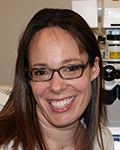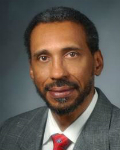Starting and managing a lab requires a very different skill set than working in a lab as a student or postdoc. You have to prioritize and balance funding, staff, and equipment, while still producing novel data. Wayne Bowen, a professor at Brown University, and Kathryn Reissner, an associate professor at the University of North Carolina School of Medicine, offer tips to scientists looking to start their first lab, and share their personal experiences in launching their labs.
For more information about starting a lab, check out the workshop Success in Academia: Different Strategies for Different Stages, or read about lab management in the interview An Inside Look at How One PI Manages His Lab.
Speakers

Kathryn J. Reissner, PhD
Kathryn (Kate) Reissner is an Associate Professor in the Department of Psychology and Neuroscience at UNC Chapel Hill. She received a Bachelor’s degree in Chemistry from Duke University and a PhD from the Department of Neurobiology and Behavior at UC Irvine, studying synaptic plasticity in Aplysia californica. Following completion of a postdoctoral fellowship in the lab of Peter Kalivas at the Medical University of South Carolina, Dr. Reissner joined the faculty of UNC-CH in 2013. Research in the Reissner lab is focused on understanding the effects of drug abuse on astrocyte physiology and morphology, as well as the basic science of neuron-astrocyte communication. The Reissner lab has found that abstinence from cocaine self-administration results in progressive atrophy of nucleus accumbens astrocytes, which may contribute to long-lasting consequences of drug abuse. In addition to research, Dr. Reissner teaches at the undergraduate and graduate levels in the areas of brain and behavior, substance use biology, and learning and memory.
Wayne Bowen, PhD
Wayne Bowen is a biology professor in the department of molecular pharmacology, physiology, and biotechnology at Brown University. Bowen is a nationally recognized leader in research on sigma receptors membrane proteins found in tissues throughout the body and that are highly upregulated in cancer cells. Trained initially as a chemist, he maintains a strong interest and involvement in medicinal chemistry and drug design, particularly in relation to development of selective sigma receptor agonists and antagonists.







